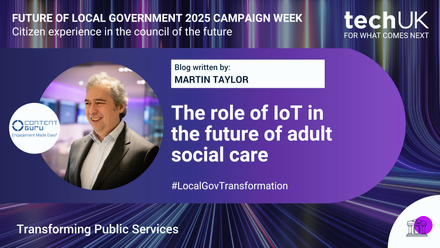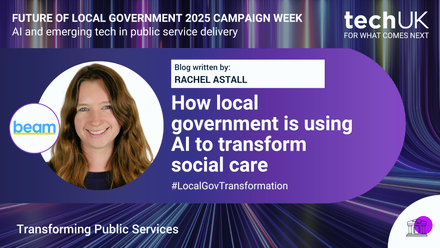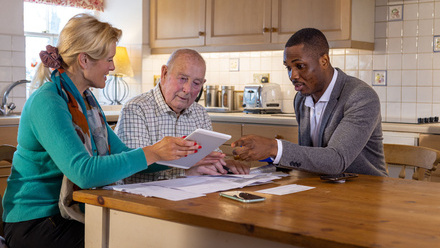Automation is not optional for the NHS, it’s essential
Guest blog by Louise Wall, Founder and Managing Director at e18 Innovation
The 10-Year Plan makes it clear that the NHS cannot continue operating as it has been, it must modernise and adapt.
Rising demand, workforce shortages, and financial pressures mean the current model is unsustainable, and for too long, repetitive, manual processes have drained capacity from both NHS staff and finances.
To preserve the founding principles of the NHS, leaders need to rethink how services are delivered and how the private sector can play its part in enabling the Plan’s ambitions around workforce, productivity, and digital-first care.
We need a holistic approach that delivers the right solution, where it will deliver the biggest impact and sustained results. Our focus has to be on maximising the skilled resources we have and using intelligent automation to relieve the pressure where it is most acute.
Finding the correct tech
I’ve spent 25 years in and around the NHS and, over time, I realised that the workforce crisis wasn’t going away. That’s why I set up e18 ten years ago.
I knew that technology alone was never going to be the answer, so I didn’t set out to build a solution or choose one tool to back. My starting point has always been understanding the critical issues and how to address them, including resourcing and financial pressures, workforce burnout, growing waiting lists and an increasing admin burden.
By staying vendor-agnostic and focused on those challenges, we can find the right tool to resolve the problem. It’s rarely a one-size-fits-all. Change management and wraparound support are also vital for uptake and for achieving results.
Supporting the workforce
Across the whole economy, it is clear that happier, healthier staff deliver higher-quality work. Beyond lower sickness absence, an evidence review by the International Public Policy Observatory, the University of East Anglia and Rand Europe estimated the cost of poor mental health and wellbeing among NHS staff at over £12 billion per year.
In outpatients and referrals specifically, automation can reduce delays and improve flow. In discharge, it helps patients leave hospital sooner and reduces bed blocking. In cancer pathways, it ensures timeliness and safety, and across admin-heavy areas like HR, finance, and coding, it takes the burden off stretched teams.
Automation is sometimes seen as a threat to jobs in optimising delivery, but that isn’t the case. The NHS has tens of thousands of vacancies and the reality is that automation can be used to offset agency spend, overtime, and unfilled posts, not used as a tool to cut vital roles.
In cancer pathways, patient tracking is often still managed through inefficient manual processes, which creates unnecessary risk and pressure on staff. Automation can streamline these flows, ensuring patients are not missed, diagnostics are connected, and care is delivered safely and on time
By automating repetitive, rules-based tasks, we can release capacity for staff to focus on patient care, decision-making, and more fulfilling work. That makes a tangible difference to morale and to patient outcomes.
Evidence based delivery
There are many suppliers that promise quick fixes, but quick does not necessarily deliver the best outcome. The NHS needs evidence-based delivery rather than inflated or unsubstantiated claims.
That comes from practical, NHS-focused, ethical, and experienced consultancies. At e18, for example, many of our team are ex-NHS operational and clinical staff who understand the system and its pressures first-hand. A key focus for us is delivering business cases that can pay back within a year, and we make implementation bite-sized and manageable to help deliver results quickly.
This autumn, e18 joined Digital Workforce, a Finland-based leader in Automation and AI. While we remain e18 Innovation, this step brings new global expertise and capacity to our NHS customers. Together, we are better equipped than ever to help deliver the digital transformation and workforce sustainability envisioned in the 10-Year Plan.
Sharing what works
Our ethos has always been collaboration, not duplication, and this must happen nationally. Too often, trusts are spending thousands on discovery work or solutions that already exist elsewhere.
If one Trust has developed a solution, either alone or with a supplier, another shouldn’t need to start from scratch. A culture of sharing is essential if automation is going to spread quickly and cost-effectively.
That’s why we established the NHS Automation and AI Community, which is available to all NHS organisations, and provides a space where knowledge, tools, and real-world examples can be shared freely. At the heart of this is our online library of more than 350 processes, spanning both clinical and non-clinical areas. By making this work available nationally, we can help reduce duplication, accelerate adoption, and ensure best practice is shared across the country.
Delivery is the key
The NHS has no shortage of strategies and to achieve the aspirations set out in the 10-Year Plan, the system needs trusted external partners who can cut through complexity and help the healthcare system to get results. The crux is the delivery. This is the point where it will either succeed or fail.
Right now, we are only scratching the surface of what automation could achieve for the NHS. Even the most advanced trusts have only implemented a fraction of what’s possible. With careful governance and collaboration, far more can be done.
e18, as part of Digital Workforce, is ready to play its part. Automation is not about hype; it is about consistent, evidence-based delivery at scale. If the NHS is to meet the ambitions of the 10-Year Plan, automation must be at the forefront.
Health and Social Care Programme activities
techUK is helping its members navigate the complex space of digital health in the UK to ensure our NHS and social care sector is prepared for the challenges of the future. We help validate new ideas and build impactful strategies, ultimately ensuring that members are market-ready. Visit the programme page here.
Upcoming events
Latest news and insights
Learn more and get involved
Health and Social Care updates
Sign-up to get the latest updates and opportunities from our Health and Social Care programme.
Authors
Louise Wall
CEO, e18 Innovation









